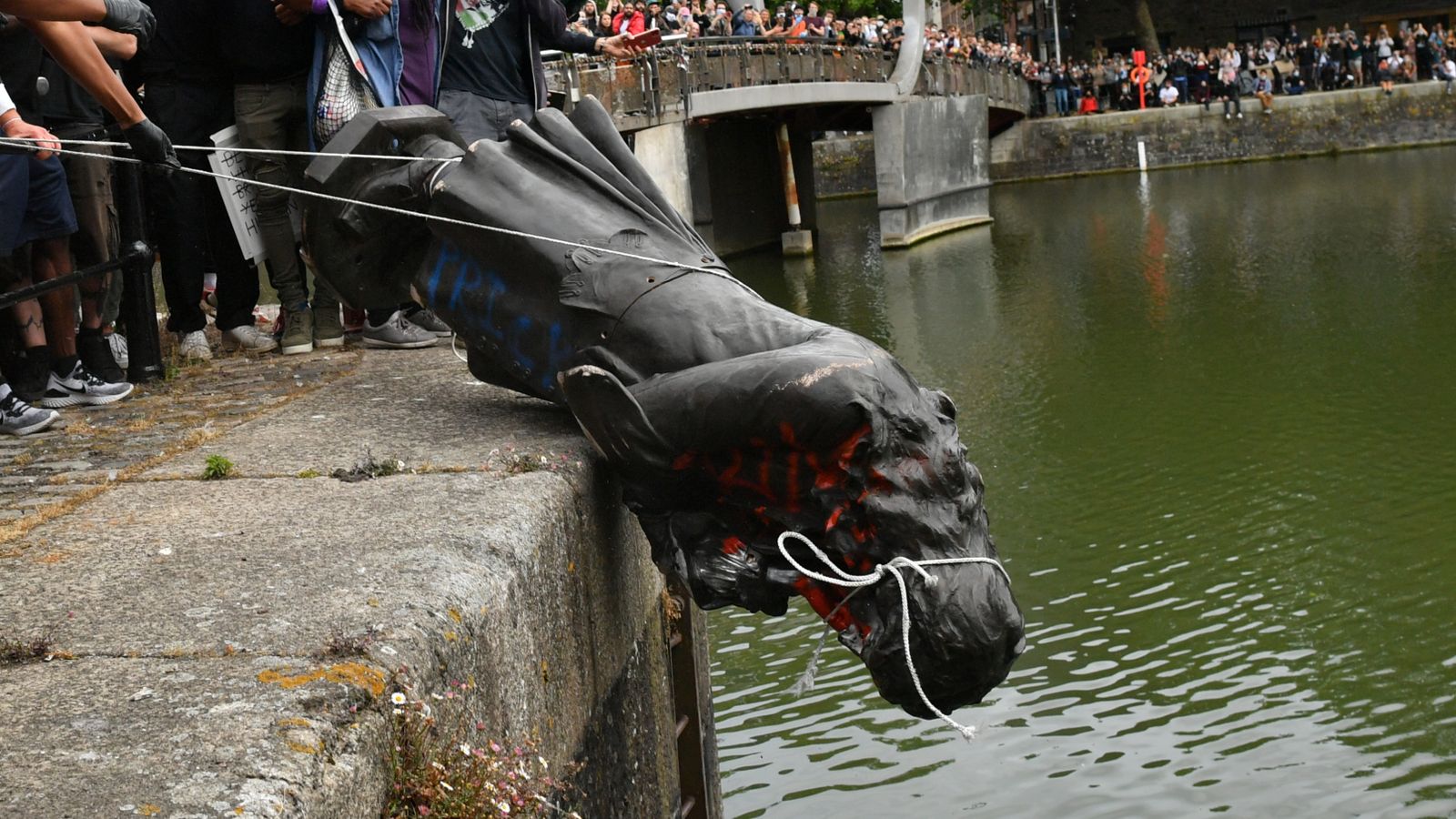The University of Bristol will strip the dolphin emblem of slave trader Edward Colston from its logo.
It comes after a year-long public consultation on whether seven buildings – with links to families and figures connected with the slave trade or commodities associated with slavery – should be renamed.
Protesters toppled and hurled Colston’s statue into Bristol Harbour in 2020 after longstanding grievances about his involvement in the Royal African Company in the 17th century.
The mercantile company transported enslaved African women, men and children to the Americas, more than “any other single institution during the entire period of the transatlantic slave trade”, according to historian Professor William Pettigrew.
Be the first to get Breaking News
Install the Sky News app for free
While Colston’s statue had been erected in the late 19th century to celebrate his local philanthropy, he did not contribute to the foundation of Bristol University.
The university said it had not received any funding from the slave trader who died nearly 200 years before it was established, yet his personal dolphin emblem formed part of the institution’s crest and logo which was designed in 2003.
It said: “We will remove the emblem from the logo.
‘Clearly dangerous’ arsonist behind £2.6m Bristol shipyard fire sentenced to life in prison
Barton House: Evacuated residents face fear and uncertainty over safety-hit Bristol tower block
‘Clifton rapist’ Ron Evans, who spent over 50 years behind bars, is jailed again for sex attack
“The sun symbol of the Wills family and the horse emblem of the Frys will remain, reflecting the wider decision around retaining building names.”
These families provided “substantial financial gifts” to help establish the institution, Bristol University said.
It added that the families did not own or traffic in enslaved people, though the products that their predecessors dealt in such as tobacco, sugar and cocoa were “connected to enslaved labour”.
Read more from Sky News:
Arsonist behind £2.6m shipyard fire sentenced to life in prison
Guyana president demands slavery reparations
Professor Evelyn Welch, president of the university, announced the emblem’s removal in an open letter in which she also apologised to those who had experienced racism at the institution following the consultation.
“Throughout, I heard many distressing stories from those who had experienced racism and racist behaviours while engaging with, working at, or studying at the University of Bristol,” Professor Welch said.
“What began as a consultation on our history and building renaming became a powerful platform to expose deep hurt and frustration with our slow progress and commitment to racial equity.”
She was “deeply sorry” to the victims of these experiences and said the institution “must do better”.
The university said it would aim to make its history, both negative and positive, more visible to staff, students and local communities.
It will also pledge £10m over the next decade to a programme that will tackle racial injustice and inequalities internally and in local communities it works with.







